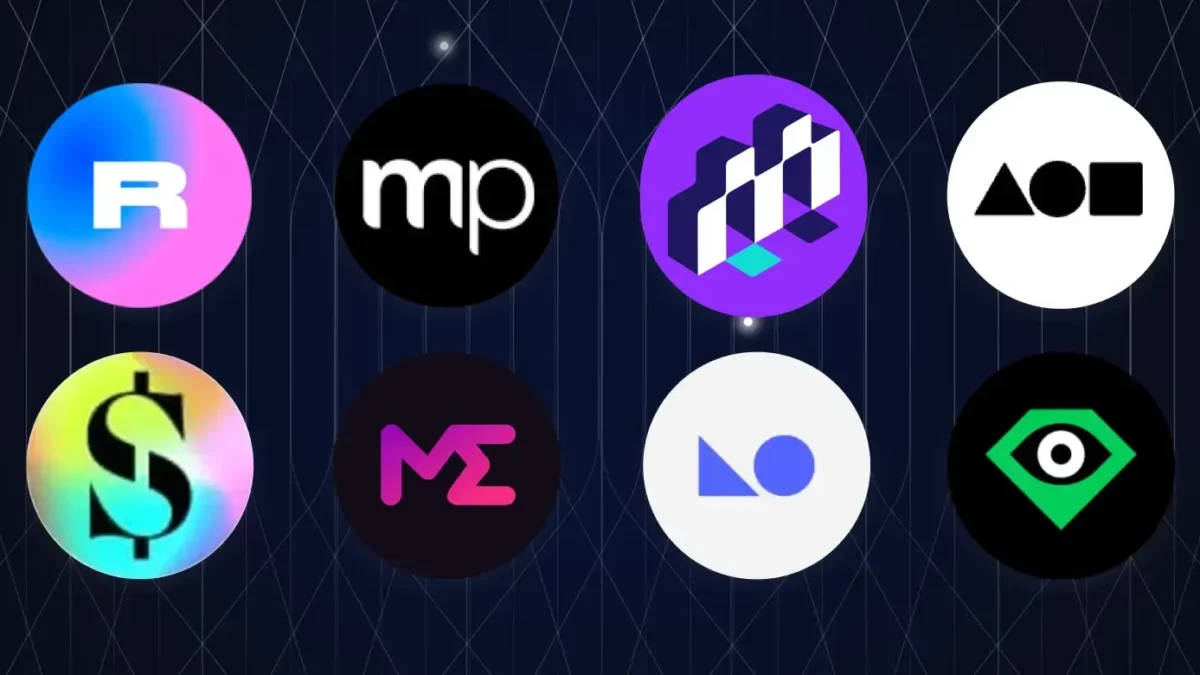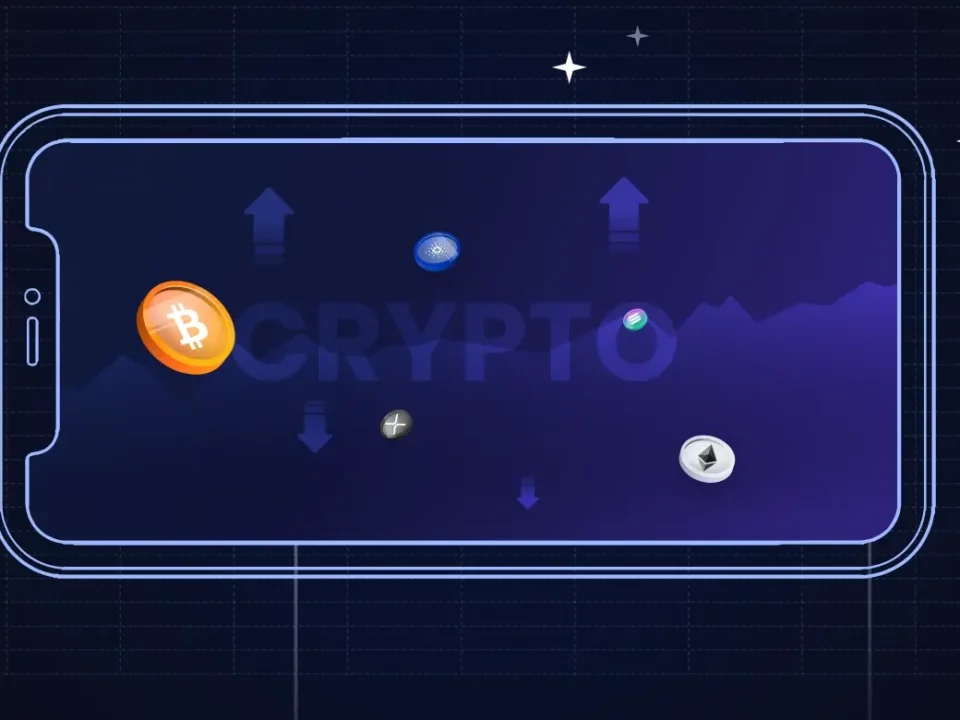Table of Contents
ToggleIntroduction
In the dynamic realm of non-fungible tokens (NFTs), Opensea has emerged as a prominent marketplace for digital collectibles. However, the NFT landscape is continually evolving, and artists, collectors, and traders are seeking diverse platforms that offer a range of features and benefits.
This quest has given rise to a thriving ecosystem of Opensea alternatives in 2023, each vying to be the top destination for NFT enthusiasts.
In this comprehensive guide, we’ll explore the top Opensea alternatives of 2023, highlighting their unique attributes, pros, and cons. Whether you’re an NFT creator, buyer, or seller, this compilation of NFT marketplaces will help you discover the most fitting platforms to explore and engage with the world of digital collectibles.
What is OpenSea?
Opensea, established in 2017, is a juggernaut in the world of NFT marketplaces. This Ethereum-based platform has revolutionized digital ownership by allowing creators and collectors to buy, sell, and trade NFTs effortlessly. The platform was primarily designed to serve as an online marketplace for digital assets, providing a space for artists, gamers, and content creators to monetize their work.
Functionality:
- Comprehensive NFT Hub: Opensea is a versatile marketplace where artists can tokenize their digital paintings, gamers can trade exclusive in-game assets, and musicians can release limited edition music NFTs on the platform.
- User-Friendly Interface: Opensea’s user interface is intuitively designed, making it easy for both beginners and experienced users to navigate and explore NFT collections. The search and filtering options further enhance user experience.
- Blockchain Integration: As an Ethereum-based platform, Opensea leverages the security and transparency of blockchain technology, ensuring the provenance and authenticity of NFTs.
Drawbacks:
- High Gas Fees: The Ethereum blockchain’s gas fees can sometimes make it expensive to mint, buy, or transfer NFTs on Opensea. For emerging artists and small creators, these fees can eat into their profits.
- Environmental Concerns: Ethereum’s energy-intensive proof-of-work (PoW) consensus mechanism has drawn criticism for its carbon footprint. Opensea’s operations contribute to this issue, which is a growing concern in the NFT community.
- Competitive and Saturated: Opensea’s massive user base makes it a highly competitive marketplace. Emerging artists may find it challenging to gain visibility among the multitude of listings, and collectors might miss out on hidden gems.
- Dependence on Ethereum: Opensea’s exclusivity to Ethereum means it’s tied to the network’s scalability issues and high gas fees. Users may encounter delays and transaction costs during peak network congestion.
- Intellectual Property Concerns: Opensea has faced legal challenges related to copyrighted content and trademarks being tokenized without permission. The platform’s approach to addressing these concerns is an ongoing issue.
Understanding Opensea’s significance and limitations lays the groundwork for exploring alternative NFT marketplaces that cater to diverse needs and preferences in the evolving NFT landscape. In the next sections, we will delve into the top Opensea alternatives in 2023, highlighting their unique features and advantages.
Read More: How to Create an NFTs on OpeSea?
Points to Consider Before Choosing an NFT Marketplace
As the NFT marketplace ecosystem expands beyond Opensea, selecting the most suitable platform to buy, sell, or trade NFTs can be a crucial decision. Here are some key factors to consider before making your choice:
- Diverse NFT Categories: Before committing to an NFT marketplace, ascertain the range of digital assets it supports. Whether you’re into digital art, virtual real estate, or collectibles, ensure the marketplace aligns with your interests.
- Blockchain Compatibility: Each NFT marketplace is built on a specific blockchain, affecting transaction costs, scalability, and energy efficiency. While many platforms utilize Ethereum, newer alternatives might be based on more eco-friendly or scalable blockchains. Consider your willingness to navigate Ethereum’s gas fees and the environmental implications.
- User Interface and Experience: A user-friendly interface can significantly impact your NFT experience. Explore the interface and evaluate how easy it is to use. A clean and responsive design can enhance your overall experience.
- Community and Engagement: Communities play a crucial role in the NFT space. Investigate whether the platform fosters an active and supportive community.
- Minting and Transaction Costs: Minting NFTs and executing transactions often involve costs. These expenses can vary significantly depending on the platform and blockchain. Assess the platform’s fee structure and evaluate its compatibility with your budget and financial goals.
- Security and Provenance: The security of your NFT investments is paramount. Verify the platform’s measures for safeguarding your digital assets and ensuring their provenance. Understand the platform’s approach to copyright and intellectual property rights.
- Curation and Discovery: Curation tools and discovery features can aid in uncovering noteworthy NFTs. Platforms that facilitate efficient browsing, searching, and filtering can enhance your ability to find hidden gems and unique creations.
- Unique Features and Benefits: Different NFT marketplaces offer unique features and advantages. Some provide exclusive collaborations or partnerships, while others focus on gamified experiences. Assess what additional benefits each platform offers to align with your goals.
- Trading and Liquidity: The liquidity of an NFT marketplace impacts the ease of trading and selling your assets. Investigate the trading volumes and dynamics of the platform to assess the market’s vibrancy.
- Legal and Regulatory Compliance: NFTs operate within a legal framework that is evolving. Ensure the platform complies with relevant laws and regulations. Being aware of your legal obligations and rights is essential when navigating the NFT space.
Making an informed decision when choosing an NFT marketplace ensures that your experience aligns with your goals and preferences. By considering these factors, you can explore the top Opensea alternatives in 2023 to find the platform that best suits your NFT journey.
Read On: Top NFT Marketplaces
Top 8 OpenSea Alternatives You Need to Know About in 2023
As the NFT marketplace landscape continues to evolve, Opensea alternatives have gained prominence, offering unique features and benefits. Whether you’re an artist, collector, or investor, exploring these platforms can help you find the best fit for your NFT journey. Here are seven top Opensea alternatives in 2023, along with their features and pros and cons:
Rarible
- Features: Rarible allows users to create and trade NFTs with ease. It offers a decentralized marketplace with curation features, and users can stake the platform’s governance token, RARI, for decision-making.
- Pros: It promotes artist-friendly policies, decentralized governance, and low transaction fees. Rarible also has a unique “minting” feature.
- Cons: The decentralized nature might lead to some counterfeit NFTs, and the user experience can be intimidating for newcomers.
SuperRare
- Features: SuperRare specializes in high-end digital art NFTs. It provides a marketplace for rare, one-of-a-kind creations. Artists and collectors can engage in auctions and direct sales.
- Pros: Known for its exclusive art collection, SuperRare offers a platform for top-tier artists and collectors to connect. The curation ensures a high standard of quality.
- Cons: Entry barriers can be high, and the platform primarily focuses on digital art, limiting diversity.
MakersPlace
- Features: MakersPlace emphasizes unique and authenticated digital art. It allows creators to sign their digital artworks, proving ownership and originality.
- Pros: A strong emphasis on art authentication, creator royalties, and an active collector base make it a robust platform for digital artists.
- Cons: It has a narrower focus, mainly catering to digital artists.
Foundation
- Features: Foundation focuses on empowering creators by allowing them to mint and auction NFTs with customizable royalty structures.
- Pros: It encourages artist empowerment and creativity, offering a space for artistic experimentation and innovation.
- Cons: The marketplace is relatively new, with a growing but smaller user base.
LooksRare
- Features: LooksRare is an emerging NFT marketplace that specializes in NFTs from various blockchain networks, making it a diverse hub for NFT collectors.
- Pros: It offers cross-chain NFT support, making it a go-to platform for collectors interested in various blockchain ecosystems.
- Cons: As a newer marketplace, it might have a smaller user base compared to established platforms.
Magic Eden
- Features: Magic Eden is a Solana-based NFT marketplace focusing on the Solana blockchain’s NFT ecosystem. It provides a space to trade unique Solana-based NFTs.
- Pros: Magic Eden is known for its specialization in Solana NFTs, which have gained popularity due to their scalability and low transaction costs.
- Cons: If you’re looking for NFTs from other blockchains, this platform might not offer the same variety.
Mintable
- Features: Mintable is an NFT marketplace that emphasizes the ease of minting NFTs. It provides tools for creators to easily create and sell NFTs without coding.
- Pros: It’s an excellent choice for artists and creators looking to start their NFT journey without technical barriers.
- Cons: Competition in the NFT marketplace space is intense, and Mintable competes with larger platforms like OpenSea.
KnownOrigin
- Features: KnownOrigin is an art-focused NFT marketplace that emphasizes quality and the authenticity of digital art. It aims to provide a space for original and unique creations.
- Pros: A commitment to art quality and rarity, combined with a strong community, makes it a great platform for digital artists and collectors.
- Cons: The marketplace is smaller compared to some alternatives, and its limited scope may not cater to a wide range of NFTs.
Exploring these Opensea alternatives in 2023 can open up exciting opportunities for artists, collectors, and investors. Consider your preferences and goals when selecting the platform that aligns best with your NFT journey.
Conclusion
In the dynamic world of NFTs, OpenSea has long been a dominant player, attracting creators, collectors, and enthusiasts due to its size and popularity. However, as 2023 unfolds, the NFT marketplace sees increasing competition. A range of compelling OpenSea alternatives has emerged, catering to diverse needs such as lower fees, unique features, or specialized NFT collections.
Each alternative has its pros and cons, but your choice should depend on your personal preferences. As the NFT market evolves, staying updated on these OpenSea competitors is crucial for making informed choices. These platforms are vying to establish themselves in the ever-changing NFT marketplace of 2023.
FAQs
What is the largest NFT marketplace in 2023?
In 2023, OpenSea remains the largest NFT marketplace, continuing its dominance in the industry. However, it faces growing competition from emerging alternatives.
What is the best alternative to OpenSea?
The best alternative to OpenSea depends on your specific needs and preferences. Some popular OpenSea alternatives in 2023 include Rarible, LooksRare, Magic Eden, and others. Each has its unique features and advantages, making it essential to consider what suits you best.
Is Mintable better than OpenSea?
Whether Mintable is better than OpenSea depends on your requirements. Mintable offers features like gas-free minting and lower fees, making it an attractive choice for some users. However, OpenSea's extensive user base and vast NFT collection might be preferable to others.
Which platform is best for NFTs?
The best platform for NFTs in 2023 varies from person to person. OpenSea is a popular choice due to its size and variety of NFTs, while alternatives like Rarible, LooksRare, and Magic Eden cater to different niches. To determine the best platform for you, consider factors such as fees, community, unique features, and the specific type of NFTs you're interested in collecting or trading.
Related posts
Understanding the Different Types of Cryptos: Coins, Tokens, Altcoins & More Explained
Explore the major types of crypto assets and their unique roles.
Read more
PAWS Telegram Game: The New Tap to Earn Game That Is Beating Hamster Kombat
Discover how to play and earn with PAWS Telegram game.
Read more


